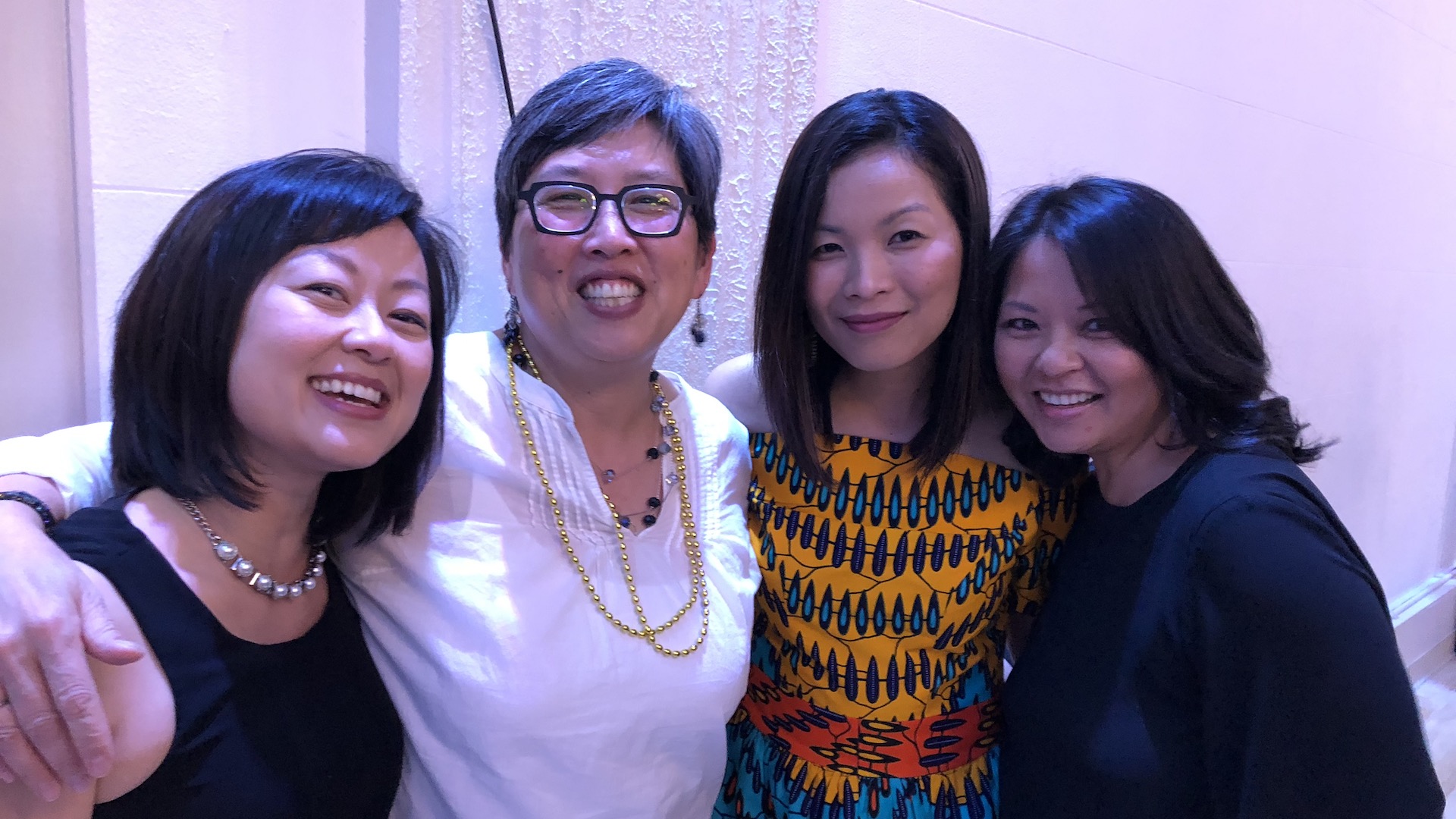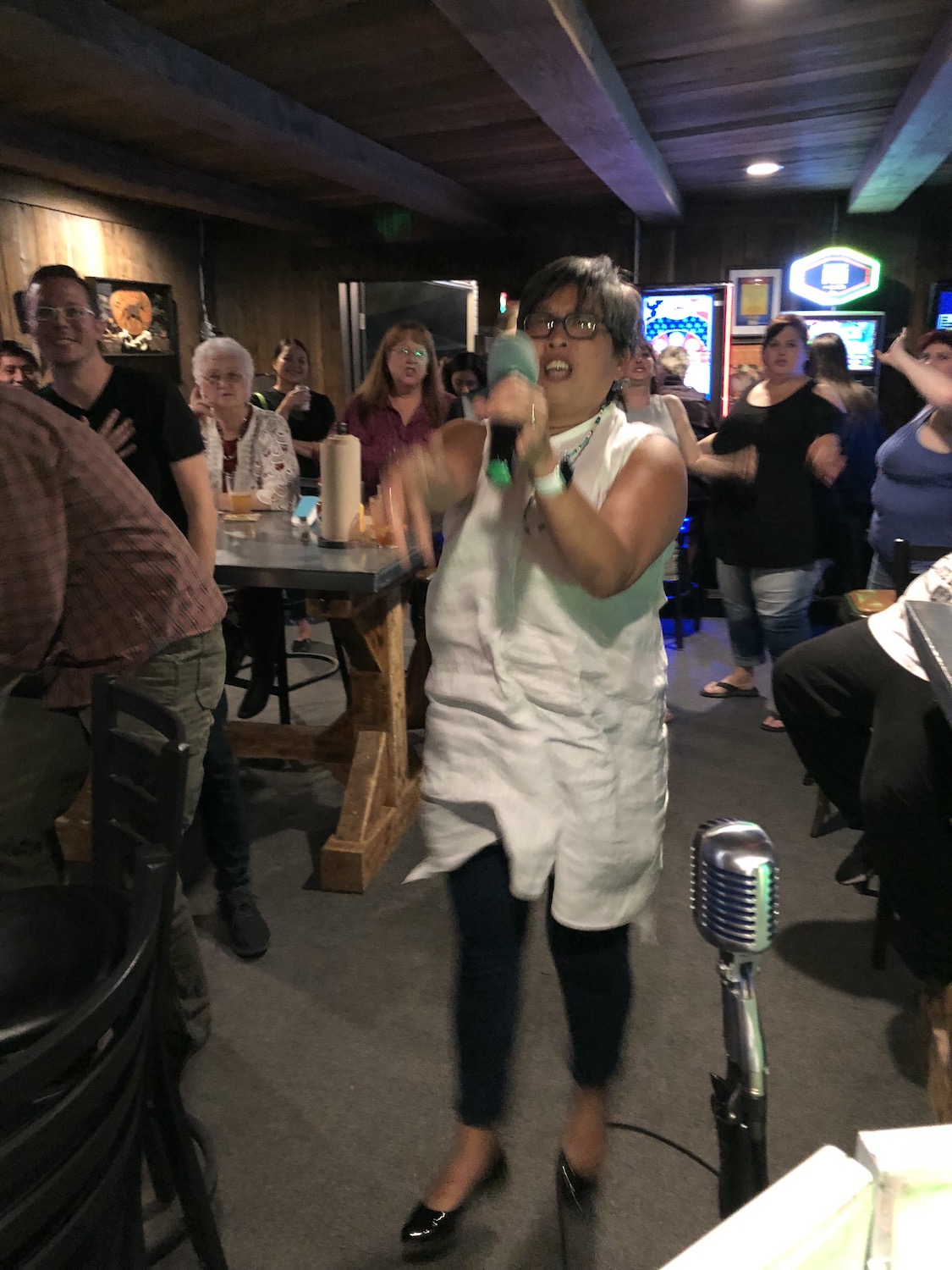You grew up in your teenage years on an alfalfa and wheat ranch in Northeast Oregon, just outside of the town of Ione in Morrow County. What formative memories or lessons do you still carry from your upbringing there?
Growing up in a small community, people really come together. I remember a big fire on the ranch that was pretty close to our house. Everybody showed up to help and brought their equipment. They knew that if the fire traveled further, it would have caused problems for others.
We often hear this kind of thing about rural communities, but it really is true. It’s quicker and easier to come together in rural Oregon than in urban settings, where sometimes you hardly even know your neighbors who live right next door. When services aren’t as readily available, you have to rely on each other. When it's harder to access what you need, you borrow what you need and then pay it back when you can. It sounds silly, but it really is the ‘cup of sugar’ idea.
And in a way, what made growing up there sometimes hard is also what made it great. The bad thing is, everybody knows everybody’s business—and the good thing is, everybody is up in each other’s business. If you don’t show up, people notice.
Would you call that peer pressure?
It might be, but it’s really a different way to think about community. I’ll be there for you, you’ll be there for me. There’s an expectation and a desire for that connection.
You’ve worked everywhere from the fields of a tree nursery in Boring to the halls of state government and philanthropy. How has this shaped the way you think about systems change?
You have to meet people where they are with the tools that are readily available, no matter what those tools are. So when I think about systems change, I’m really thinking about different levels of change.
When I was at the tree nursery, I saw ICE raids—or back then, INS raids—and I remember talking with my co-workers in the Latinx community to try to understand what was going on. A huge part of this tree nursery’s workforce stopped working because either they were detained or too afraid to come out. And I was asking, what is the business doing to help that workforce, even if it's just for their own benefit? What was their role in changing those policies?
When I first started in the domestic violence field at a community organization, I didn't know that I was supporting systems change. For example, I worked with the Oregon Medical Association and healthcare providers to help them learn why, when a woman is literally beaten up, it’s really important to not bring her partner into the emergency room or a doctor’s appointment so that she has the freedom and safety to talk about what really happened. We organized trainings about this, but I didn’t see it as policy change. It was just, “Be aware, dammit!” But what happened, as a result, is that the policies changed.
Working in government, I really felt the power of community voice—the power of people working together to not only identify a problem and a policy solution, but also to understand the politics. When I worked in small organizations, I often thought, “I don't care what the politics are. These are my politics.” But working in government, I learned that it’s not that simple—that bringing together multiple perspectives to develop a policy solution that will survive takes time and a willingness to be curious and listen. We had to think about the best case scenario—the policies that we really wanted—and then think about the policies that we thought we could live with.
I also think a lot about how philanthropy uses its voice for systems change. A lot of people—including people in philanthropy—think of philanthropy as where the money is, and that’s it. The resources of philanthropy also afford us significant influence. That could be in the halls of power that we get to walk through, or supporting organizations with data that supports their causes. There’s more to do than just getting the money out. More ways to truly be good partners.
Too often, efforts to create more equitable and just systems for children are stalled by zero-sum thinking. What do you think is the antidote to this mindset?
We need a thorough examination and understanding of the benefits to all when we benefit some. One of my favorite pieces is [civil rights advocate] Angela Glover Blackwell's article about curb cuts. Right now in my neighborhood, Portland is making cuts in the sidewalk curb so people with disabilities can move off and on sidewalks more easily. But who else uses those? Runners like to use them. People with strollers. People who might be in crutches or temporarily disabled. So the intent and priority population for the curb cut is people with disabilities, but look at how all of us benefit. Glover Blackwell’s article brilliantly illustrates and lifts up that understanding.
Doing racial justice work, I feel like we go through cycles of learning, creating strategic and actionable solutions, and then we forget them and start over and over again. It’s true with this pandemic too. Only a decade ago, we learned a lot about inequitable health outcomes based on race during H1N1, the so-called 'Swine Flu,' but I see the same barriers cropping up again. It really feels like a 'zero-sum' when we don’t apply what we’ve learned.
You’re not someone who shies away from complexity. How would you assess Oregon’s appetite for grappling with complexity?
I think it depends on the complexity! I think we've grappled with a lot of complexities as a state, but when it comes to certain issues, we're just not ready to go there. There's a characteristic about Oregon where we like to be the first ones out of the gate or to be seen as the innovative pioneers. Rushing ahead doesn’t necessarily allow for complex thinking on complex solutions—maybe actually learning from others' mistakes might get us farther faster than having to remake our own. That requires some complex thinking and being able to let go of our ego.
Instead of pushing ourselves to rush to the answer, let’s be thoughtful and engaging. That means getting lots of different answers from lots of different people. In my mind, I've never come up with a really great answer on my own. I feel like the best answers I've ever been able to come up with—if in fact that's what they are—are because of lots of people's ideas. And I know that sounds kind of like the thing that I should say, but I really believe it.
That ties into your deep value for community engagement and inclusive decision-making. What are the roots of that value for you?
This is going to sound funny: In one way, it’s being a twin! Nothing was ever just me. It was always us.
I’ve always been a curious person, and there’s also a level of humility to it. For me, that sometimes showed up as, “I don't think I'm good enough to know the answer.” I have a deep appreciation of the smarts of other people, especially when it comes from lived experience and what you learn and gain from hardship failure. That’s ‘smart’ too.
So I just love being in rooms with smart people. It's really fun. And it triggers my own smarts—not like groupthink, but through the power of multiple ways of knowing.
What do you think Oregon still has to learn about authentically empowering communities in our systems and decision-making processes?
We have to remember that power comes in different forms and you never know when you're going to need it. When I worked for the Office of Equity and Inclusion at the Oregon Health Authority, it was the community that organized to save us from budget cuts. They would not have done that had we not shared our power with them and helped them get what they wanted: policies that would eliminate health disparities. This is a huge lesson that people often forget: there’s ways that power shows up at different moments, and if you share it, you’re likely to get it back.
What do you miss most about working in state government?
I loved supporting the capacity of community organizations to engage in the state process and system. I loved opening up those doors. When I started out, I really didn’t know how it all worked. I mean, I saw the Schoolhouse Rock about how a bill becomes a law, but did I really know how it all really worked? No.
One of my favorite experiences at the Oregon Health Authority was working with organizations that serve immigrants and refugees to explain how a bill becomes a law through a popular education model. We gave little signs to different people: “I'm a bill,” “I'm a Senator,” “I'm a Representative,” “I'm the Governor.” Then people ran around the room, literally and physically moving the bill to the next step of the lawmaking process so they could see how it worked.
We also noticed that there were very few people showing up in rulemaking committees, particularly from communities of color. One reason was because it's so hard to find out when those committee hearings are even happening. So we talked about what happens in rulemaking, why it matters, and worked with our rulemaking team to develop trainings and make the process more accessible.
For years, you’ve invested yourself in cultivating leadership in BIPOC, immigrant, and rural communities in Oregon. What’s your philosophy of coaching?
I’m so jazzed by young people who are coming up in the work. They’re thinking hard about what they can do to make a difference. There's something so satisfying about being there for them and helping them maneuver and navigate. I’m not sure I had anyone like that when I was a teenager.
Whether it’s a young person or a person that I'm managing, I ask: What do they need to be successful? And how can I help them tell me what they need? A lot of times, younger people might be afraid to ask because they don't want to look like they’re ‘less than.’ And I get that, because I was like this too.
So I feel like it's my job to create space where people feel like it's not a failure to ask questions. Then you have to give a lot of freedom, and outer boundaries that will help them be successful and safe. Give them the support they need up front and honest feedback along the way, and let them fly.

